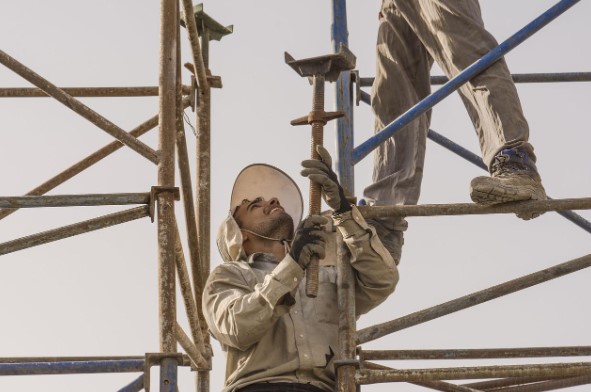When embarking on a home renovation or construction project, one of the most crucial decisions you'll make is choosing the right contractor. The quality of their work, their reliability, and their ability to stay within budget and timeline can significantly impact the success of your project. However, finding a trustworthy contractor amidst the myriad of options can be daunting. Here are some practical tips to help you navigate this process effectively.
Conduct Thorough Research
Before settling on a contractor, thorough research is essential. Start by seeking recommendations from friends, family, or neighbors who have recently completed similar projects. Their firsthand experiences can provide valuable insights into the contractor's work ethic, craftsmanship, and reliability. Additionally, utilize online resources such as review websites, social media platforms, and local business directories to gather a list of potential contractors in your area. Take time to understand how to plan your designs with a contractor, ensuring that your vision aligns with their expertise and capabilities. This step will help you filter out contractors who may not be the right fit for your specific needs, ultimately leading to a smoother renovation process.
Once you have a shortlist, delve deeper into each contractor's background. Check their credentials, licenses, and certifications to ensure they comply with local regulations and industry standards. A reputable contractor should be properly licensed and insured, which protects you from liability in case of accidents or damage during the project. Furthermore, review their portfolio of past projects. This allows you to assess the quality of their workmanship and ascertain if their style aligns with your vision for the project. By conducting comprehensive research, you can narrow down your options to contractors who meet your criteria and have a proven track record of delivering satisfactory results.
Interview Multiple Contractors
After narrowing down your list, schedule interviews with at least three contractors to discuss your project in detail. During these meetings, observe how each contractor communicates and listens to your ideas. Effective communication is crucial for a successful collaboration, as it ensures that both parties are on the same page regarding project expectations, timelines, and budget constraints. Ask each contractor for a detailed estimate that outlines the cost of materials, labor, permits, and any additional charges. Be wary of significantly low bids, as they may indicate subpar materials or potential hidden costs down the line.
Moreover, use the interviews to gauge the contractor's professionalism and problem-solving skills. Inquire about their experience with similar projects and how they handle challenges that may arise during construction. A seasoned contractor should be able to provide practical solutions and address any concerns you have regarding the project's feasibility and timeline. Lastly, request references from past clients and follow up with them to inquire about their overall satisfaction with the contractor's work. By interviewing multiple contractors, you gain valuable insights into their capabilities and can make a well-informed decision based on both qualitative and quantitative factors.
Establish Clear Expectations and Contracts
Once you've selected a contractor, it's crucial to establish clear expectations and formalize the agreement in a detailed contract. The contract should include key details such as project milestones, payment schedule, timeline for completion, and provisions for unforeseen circumstances or changes in scope. Clarify who will be responsible for obtaining necessary permits and approvals, as well as protocols for handling issues such as delays or disputes.
Additionally, outline the specifications for materials, finishes, and any other specifics relevant to your project. This ensures that both parties are aligned regarding the desired outcome and minimizes the likelihood of misunderstandings during the construction process. Review the contract carefully with your contractor and seek clarification on any ambiguous terms before signing. Remember, a well-drafted contract serves as a roadmap for the project and provides legal protection for both you and the contractor.
Special Considerations for Roofing Contractors
When hiring roofing contractors specifically, there are additional factors to consider due to the unique nature of roofing projects. As explained by experts from Alamo Roofing Contractors, roofing is a specialized skill that requires expertise in materials, weather considerations, and safety protocols. Begin by verifying that the contractor is experienced in the type of roofing material you intend to use, whether it's shingles, tiles, metal, or flat roofing. Ensure they have a proven track record in installing or repairing roofs similar to yours, especially considering the climate and environmental conditions of your location.
Moreover, confirm that the roofing contractor adheres to safety standards and carries adequate insurance coverage, including worker's compensation and liability insurance. Roofing can be inherently risky, and proper insurance protects you from potential liabilities arising from accidents or damage during the project. Additionally, inquire about warranties offered by the contractor and the manufacturers of roofing materials. A reputable contractor should provide warranties that cover both labor and materials, offering you peace of mind regarding the longevity and durability of your new roof.
Check References and Reviews
Before finalizing your decision, take the time to thoroughly check references and read reviews of the contractors you're considering. Contact previous clients directly to ask about their experience working with the contractor. Inquire about the contractor's punctuality, communication, adherence to budget, and the quality of workmanship. Reviews on platforms like Google, Yelp, or Angie's List can also provide valuable insights into the contractor's reputation and customer satisfaction levels. Pay attention to how the contractor responds to feedback and handles any issues that may have arisen during projects. A contractor with consistently positive reviews and satisfied clients is more likely to deliver a positive experience for your own project.

Communication and Flexibility
Effective communication is key to a successful contractor-client relationship. Choose a contractor who listens attentively to your ideas, concerns, and preferences. They should be accessible and responsive to your calls and emails, providing regular updates on the progress of the project. Clear communication helps prevent misunderstandings and ensures that any adjustments to the project can be addressed promptly.
Furthermore, prioritize flexibility when selecting a contractor. Construction projects can be unpredictable, with changes in timelines, material availability, or unforeseen challenges. A flexible contractor will adapt to these changes while maintaining the overall integrity of the project. Discuss potential scenarios and how the contractor plans to handle adjustments or delays without compromising quality. A contractor who demonstrates flexibility and a proactive approach to problem-solving is invaluable in ensuring a smooth and successful construction or renovation experience.
Selecting the right contractor involves thorough research, careful consideration of credentials and references, effective communication, and clear contractual agreements. By following these practical tips, you can navigate the process confidently and increase the likelihood of a successful outcome for your home improvement project. Remember to prioritize transparency, professionalism, and compatibility when choosing a contractor, ensuring that they have the expertise and commitment to deliver the results you envision. Investing time and effort upfront to find a qualified and trustworthy contractor will pay off in the quality and satisfaction of the final construction or renovation of your home.










